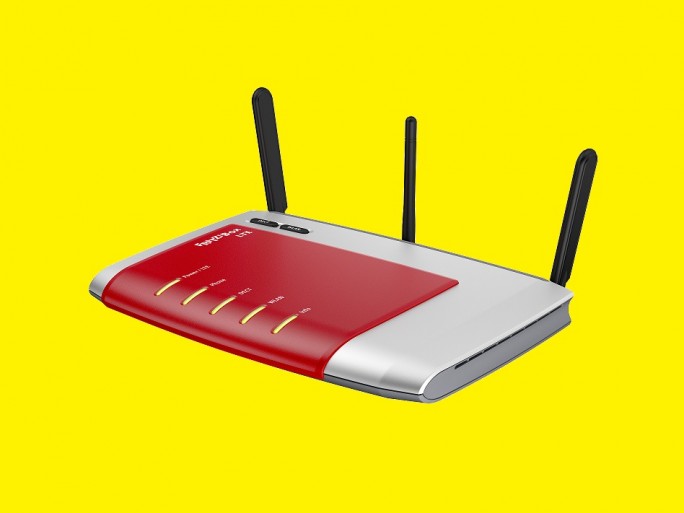German router maker AVM is proposing a 4G enabled router as a solution for users in rural areas unable to get fast broadband service. Using LTE, it could get them online with speeds up to 100Mbps.
AVM has released two new FRITZ!Box routers: the 4G/LTE enabled FRITZ!Box 6810 and FRITZ!Box 6840. Both are primarily aimed at customers who live far away from fibre networks or fast ADSL or VDSL lines, but still want a decent connection speed.
4G for the home network

The FRITZ!Box 6810 supports the 800MHz band and the 2.6GHz band. The more advanced FRITZ!Box 6840 supports all three LTE frequencies and also features a USB 2.0 port to link printers and storage devices, enabling it to serve as a media server for music, photos and videos. Given a fair signal from a 4G provider (at the moment that means only EE), they could deliver 100Mbps downstream and 50Mbps upstream, which the router distributes through a home or office using Wi-Fi.
Both routers offer in-built VoIP capability (an AVM trademark for some time), and a built in DECT station, which means they can replace the landline phone with up to six DECT (Digital Enhanced Cordless Telecommunications) units. The 6840 also includes an analogue interface for old-school telephones and fax machines.
Both devices run FRITZ!OS, the proprietary software that enables features such as WLAN guest access, advanced parental control software, answering machines and firewalls.
To create these 4G models, AVM moved away from the classic design that features recognisable “fins”, and opted for a chassis small enough to fit on any window sill, where reception would be the best.
There’s only one drawback – both routers require a 4G SIM, and right now the choice of providers of such a service in the UK is still limited.
The only mobile network operator currently offering 4G in the UK is EE. The company has attracted over 318,000 subscribers to its ultra-fast network since launch in October 2012, but has been criticised for low data caps and high prices. O2, Vodafone and Three are all planning to launch their own 4G networks in the nearest future. Even BT has bought itself a piece of the relevant spectrum, and is currently searching for a partner to offer increased speeds to its customers.
The use of 3G and 4G mobile data to fill gaps in Britain’s fibre broadband network has been suggested for some time, a 3G device called WiBE proposed back in 2010.
Do you know the secrets of Wi-Fi? Take our quiz!




